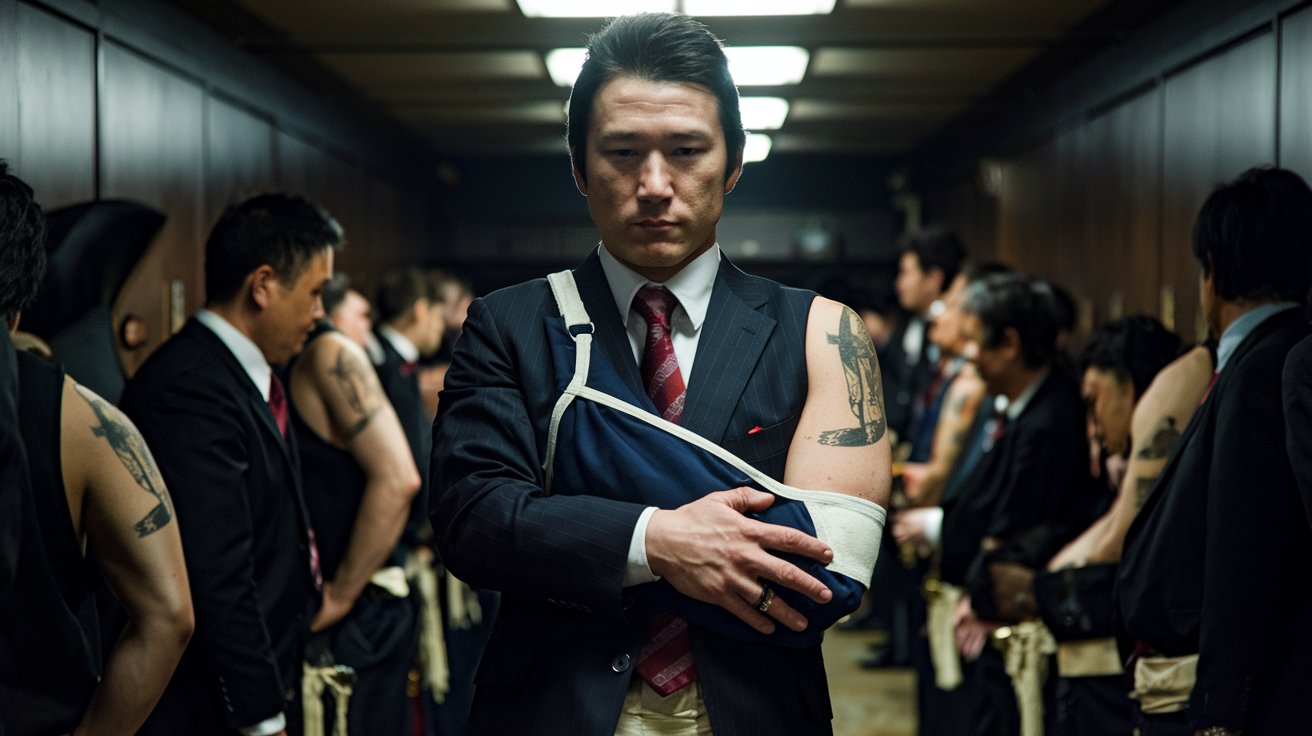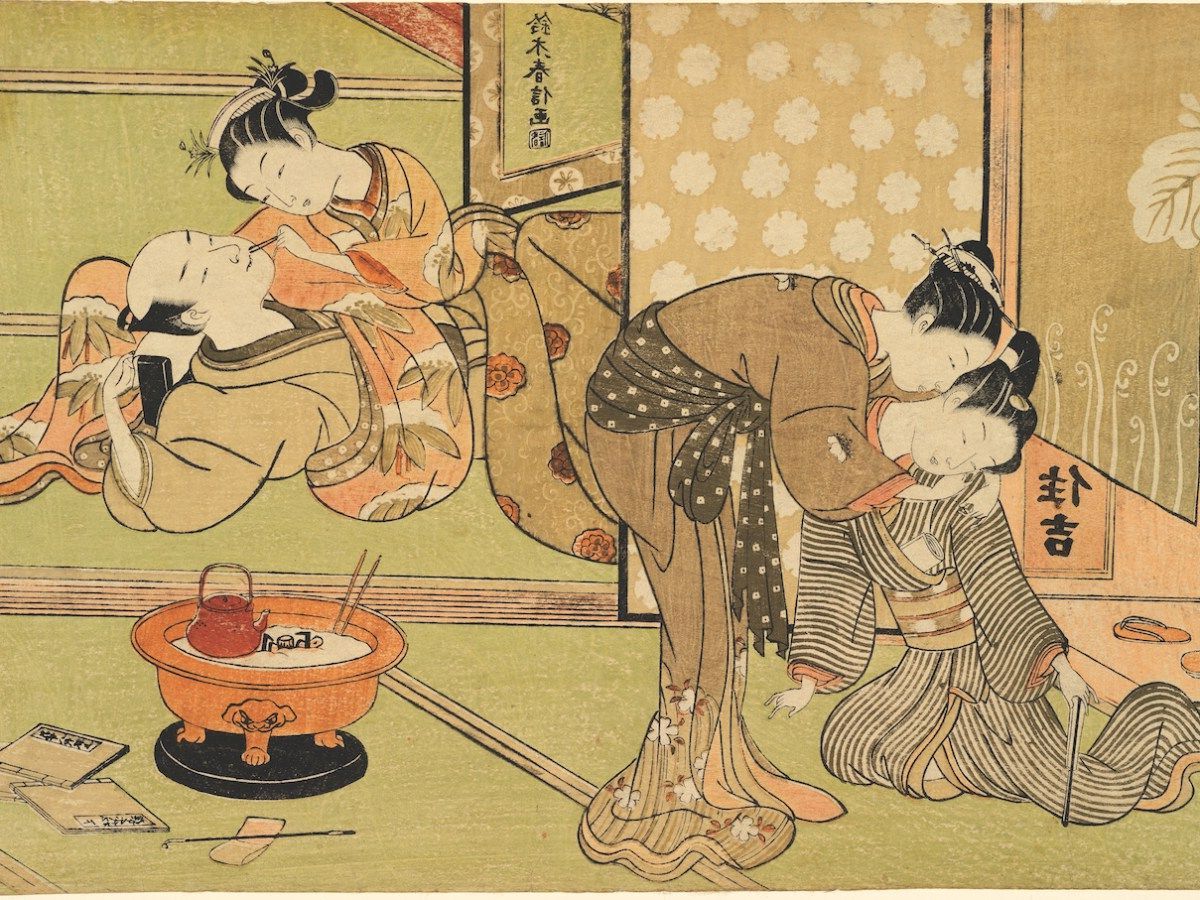
Ever wondered about the mysterious world of the Yakuza? Often referred to as Japan's mafia, the Yakuza is a complex organization deeply rooted in Japanese culture. With origins dating back to the Edo period, these groups have evolved from street peddlers and gamblers into powerful syndicates. Despite their notorious reputation, Yakuza members follow a strict code of honor, influenced by samurai traditions. From their unique tattoos to the ritual of yubitsume, where members cut off part of their pinky finger as an apology, the Yakuza's customs are both fascinating and chilling. Let's delve into 35 key facts that shed light on this enigmatic organization.
Key Takeaways:
- The Yakuza, Japan's mafia, originated from peddlers and gamblers in the Edo period. They have unique rituals and a strict code of honor, but their influence has declined in modern times.
- Despite their criminal activities, the Yakuza engage in philanthropy and have a complex role in Japanese society. They have a deep-rooted history and maintain a level of respect among the public.
Origins and Structure of the Yakuza
The Yakuza, often seen as Japan's mafia, has a long and intricate history. Their structure and traditions are deeply rooted in Japanese culture, making them a unique criminal organization.
-
Name Origin
The name "Yakuza" comes from the worst hand in the traditional Japanese card game Oichu-Kabu. A score of eight, nine, and three gives the player a score of 20, which becomes zero. This hand is called Ya-Ku-Za (eight-nine-three). -
Legal Status
Being a Yakuza member isn't illegal in Japan. However, their criminal activities are. Their headquarters and associated businesses are often clearly signposted. -
Origins
The Yakuza's origins date back to the mid-Edo period (1603–1868). They evolved from two primary groups: tekiya (peddlers of illicit goods) and bakuto (gamblers). -
Membership
Prospective members come from various backgrounds. Many start as street thugs or members of bōsōzoku gangs. About 60% are from burakumin, a socially discriminated group, and 30% are Japanese-born Koreans. -
Burakumin Involvement
Burakumin, traditionally discriminated against in Japanese society, make up a significant portion of Yakuza members. They account for about 70% of the Yamaguchi-gumi, the largest Yakuza syndicate.
Major Yakuza Syndicates
Several major syndicates dominate the Yakuza landscape. Each has its own structure, rules, and areas of influence.
-
Yamaguchi-Gumi
Yamaguchi-gumi is the largest Yakuza faction, with over 20,000 active members as of 2023. They enforce a 12-question exam for new members to ensure they understand the laws and limits of their actions. -
Yubitsume
Yubitsume is a ritual where a member cuts off part of their pinky finger as a gesture of apology or remorse. This practice weakens the person in battle, making them more reliant on their boss for protection. -
Tattoos
Yakuza tattoos are based on Japanese culture or mythology. Getting a tattoo signifies commitment; the more tattooed you are, the more committed you are. Members cover their tattoos in public.
Rise and Decline of the Yakuza
The Yakuza has seen both peaks and declines in its influence over the years. Various factors have contributed to these changes.
-
Historical Peak
At its height, the Yakuza had over 180,000 members. This peak occurred post-WWII when Japan was in shambles, and people believed in the concept of honorable gangsters. -
Decline
Due to laws like the Anti-Organized Crime Law, Yakuza membership has significantly reduced. As of 2021, there are around 24,100 members. The aging population and increased sentences for violent crimes have made membership less desirable. -
Aging Population
More than half of today’s Yakuza members are over 50, with ten percent over 70. This aging affects the organization's dynamics and influence.
Yakuza's Dual Nature
Despite their criminal activities, the Yakuza also engage in philanthropic efforts, especially during crises.
-
Philanthropy
The Yakuza have been known to engage in philanthropic activities during times of crisis. For example, they donated and delivered supplies to those affected by the 2011 Tohoku earthquake and tsunami. -
Violent Activities
Yakuza members engage in violent activities, including murder and assault. These actions are often part of their code of honor based on traditional Japanese culture and samurai traditions. -
Code of Honor
The Yakuza follows a strict hierarchy and code of honor rooted in Bushido, the traditional Japanese way of the warrior. Members are expected to adhere to principles like loyalty, honor, and discipline.
Financial Activities
The Yakuza has various sources of income, including loan sharking and gambling.
-
Sarakin (Loan Sharks)
Sarakin are loan sharks within the Yakuza. They provide financial services at exorbitant interest rates, a significant income source for many groups. -
Bakuto (Gamblers)
Bakuto were gamblers shunned by society. They acted like loan sharks and were one of the original groups that formed the Yakuza. Cards were a significant income source, leading to the name Yakuza. -
Tekiya (Peddlers)
Tekiya were street peddlers and some of the lowest-ranking members of society. They became organized and shifted into organized crime in the 17th century, forming part of the Yakuza.
Rituals and Practices
The Yakuza has several unique rituals and practices that strengthen their bonds and maintain order within the organization.
-
Yakuza Rituals
One such ritual is sakazuki, involving sharing sake to form a binding relationship rooted in Shinto tradition. This practice solidifies alliances and strengthens bonds within the organization. -
Kuromaku (Behind-the-Scenes Fixer)
Kuromaku refers to a behind-the-scenes fixer or power broker within the Yakuza. This individual manages the organization's affairs and ensures smooth operation. -
Oyabun (Boss)
Oyabun is the term for the boss or leader of a Yakuza group. The oyabun makes key decisions and maintains order within the organization. -
Kobun (Underling)
Kobun refers to an underling or junior member within the Yakuza. These individuals follow orders from superiors and adhere to the organization's code of honor. -
Boryokudan (Violence Group)
Boryokudan is a term for a violence group within the Yakuza. These groups enforce the organization's rules and deal with external threats.
Yakuza's Influence and Public Perception
The Yakuza has historically wielded significant influence over Japanese politics, business, and society. Their presence is both feared and, in some ways, respected.
-
Sōkaiya (Racketeers)
Sōkaiya are trained Yakuza racketeers who buy company shares to enter shareholder meetings. They disrupt the meeting and threaten to share embarrassing company secrets unless paid. -
Yakuza and Politics
The Yakuza has historically influenced Japanese politics and business. In the 1960s, the government called on Yakuza bosses to provide security guards when President Eisenhower planned to visit Japan. -
Yakuza in Popular Culture
The Yakuza is often portrayed in media as violent criminals and thugs. However, they are also depicted as complex characters with a deep sense of honor and loyalty, reflecting both reality and mythology. -
Yakuza and Foreign Cartoons
In Japan, some foreign cartoons, including "Bob the Builder," were edited to add a fifth finger to characters' hands. Having only four fingers implies membership in the Japanese Mafia. -
Yamaguchi-Gumi’s Halloween Party
Yamaguchi-Gumi holds an annual Halloween party for neighborhood children in Kobe. The event is known for its decorations and gift bags, and the gangsters are often described as super nice. -
Yakuza’s Philanthropic Efforts
During the Tōhoku earthquake and tsunami, the Yakuza sent hundreds of trucks filled with food, water, blankets, and sanitary accessories to aid affected areas. This act highlights their ability to engage in both criminal and charitable activities.
Modern Practices and Influence
While some traditional practices continue, the Yakuza has adapted to modern times, influencing various aspects of Japanese society.
-
Yubitsume in Modern Times
While yubitsume is still practiced, it is less common than in the past. The ritual atones for mistakes and demonstrates commitment to the organization but is viewed as barbaric by many today. -
Yakuza’s Influence on Japanese Society
Despite their illegal activities, the Yakuza has been somewhat accepted by Japanese society. They are seen as part of Japanese culture, reflecting the country's complex history and social dynamics. -
Yakuza’s Role in Land Speculation
During Japan's rapid economic growth, the Yakuza played a significant role in land speculation. They were hired to pressure residents into leaving properties, often using forceful tactics. -
Yakuza’s Presence in Sanja Matsuri
The Yakuza can be observed during the Sanja Matsuri in Tokyo. Some members might allow photography, but explicit permission is crucial before uploading images to social media. -
Yakuza’s Involvement in Corporate Affairs
Sōkaiya, trained Yakuza racketeers, buy company shares to enter shareholder meetings. They disrupt the meeting and threaten to share embarrassing company secrets unless paid. This practice is a form of corporate extortion. -
Yakuza’s Historical Feuds
During a feud between two Yakuza families in the mid-80s, local newspapers printed daily “scorecards” tallying body counts on both sides. This public display highlights intense rivalries within the Yakuza. -
Yakuza’s Cultural Significance
The Yakuza is a complex entity that has been part of Japanese culture for centuries. Their unique customs and culture reflect the country's rich history and social dynamics. Despite their illegal activities, they maintain a level of respect among the public due to their strict code of honor.
The Yakuza's Complex Legacy
The Yakuza, Japan's infamous organized crime syndicate, is a blend of tradition, crime, and unexpected philanthropy. Originating from the Edo period, these groups evolved from street peddlers and gamblers into powerful organizations with a strict code of honor. Despite their illegal activities, they maintain a level of respect in Japanese society due to their adherence to principles like loyalty and discipline. The Yakuza's influence has waned over the years, with membership numbers dropping and an aging population. Yet, their cultural significance remains, seen in their tattoos, rituals, and even their involvement in community events. Whether it's their violent history or their surprising acts of charity, the Yakuza continues to be a fascinating and complex part of Japan's social fabric. Understanding them offers a glimpse into the intricate dynamics of Japanese culture and history.
Frequently Asked Questions
Was this page helpful?
Our commitment to delivering trustworthy and engaging content is at the heart of what we do. Each fact on our site is contributed by real users like you, bringing a wealth of diverse insights and information. To ensure the highest standards of accuracy and reliability, our dedicated editors meticulously review each submission. This process guarantees that the facts we share are not only fascinating but also credible. Trust in our commitment to quality and authenticity as you explore and learn with us.


